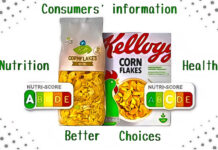The recent revelation by Radio France’s investigative unit about the intense lobbying by Big Food, supported by the Italian government, to prevent the European Commission from adopting Nutri-Score as a harmonised Front-of-Pack Nutrition Labelling (FOPNL) system is a stark reminder of how corporate interests can overshadow public health. This opaque operation, hailed by Italian Agriculture Minister Francesco Lollobrigida as a ‘victory for Italy’, is, in reality, a defeat for all European citizens, with serious implications for public health.
The public health crisis
The World Health Organization (WHO) Europe has repeatedly highlighted the dire consequences of unbalanced diets, characterised by excessive consumption of High-Fat, Sugar, and Salt (HFSS) foods. These diets are driving the European population into a spiral of obesity, overweight, and related non-communicable diseases (NCDs), starting from childhood (WHO Europe, 2022). Italy, in particular, faces a severe public health crisis, with one of the highest childhood obesity rates in Europe and a doubling of diabetes prevalence over the past three decades.
Nutri-Score adoption in Europe
Nutri-Score, a front-of-pack nutrition label developed in France in 2017, has been officially adopted and recommended in France, Belgium, Germany, Luxembourg, the Netherlands, Spain and Switzerland. Romania is in the process of introducing the Nutri-Score labeling system, after a draft decision to regulate its use published in September 2024 by the Bucharest government. Portugal is also encouraging its use, whereas Austria, Slovenia have shown interest.
Its efficacy in guiding consumers towards healthier food choices and mitigating NCD prevalence is supported by over 150 peer-reviewed scientific studies. The label’s simplicity – using a five-colour scale from green (A) to red (E) – allows consumers to quickly assess the nutritional quality of products, as recently recognized also by the University of Parma.
Despite its proven benefits, Nutri-Score has faced fierce opposition from powerful food industry lobbies, particularly in Italy. These lobbies, backed by global conglomerates like Ferrero and its ally Coldiretti, have sought to discredit Nutri-Score, also at the Codex Alimentarius Commission for Food Labelling (CCFL), fearing it would expose the poor nutritional profiles of Nutella and Kinder alike products and disrupt their aggressive marketing strategies, often targeted at children and adolescents.
The lobbying tactics
The Radio France investigation uncovered a coordinated campaign by Italian officials and industry representatives to pressure the European Commission into abandoning Nutri-Score. Italian Prime Minister Giorgia Meloni – a vocal critic of the label, as her predecessor Mario Draghi – has repeatedly dismissed Nutri-Score as a threat to Italy’s culinary traditions and ‘Made in Italy’ products. This narrative, however, is misleading.
As the creator of Nutri-Score Professor Serge Hercberg pointed out, ‘if cheeses and cured meats (and not only Italian ones) are classified mostly as D and sometimes as E, this is because they contain high amounts of saturated fat and salt and are also caloric. These products, excellent gastronomically and part of a remarkable culinary heritage, have a perfect place in a balanced diet. However, as the NutriScore D or E indicates, their consumption should be reasonable and too frequent consumption should be avoided’.
The lobbying efforts have been extensive, with 17 meetings between European Commission officials and industry representatives opposed to Nutri-Score, compared to just two meetings with civil society groups. The arguments presented by Italian lobbyists, such as the claim that Nutri-Score lacks scientific backing, are demonstrably false. In fact, no other nutrition label has as much scientific evidence supporting its efficacy, as the European Commission’s JRC (Joint Research Center) also noted (JRC, 2022).
The global perspective
International organisations have endorsed Nutri-Score as an effective public health intervention:
- the International Agency for Research on Cancer (IARC), a specialised agency of the World Health Organization (WHO), has highlighted the link between poor dietary habits and cancer risk. In a 2021 report, IARC emphasised that front-of-pack labelling systems like Nutri-Score can help consumers reduce their intake of ultra-processed foods, which are associated with increased cancer risk (IARC, 2022);
- the Organisation for Economic Co-operation and Development (OECD) has also recognised the potential of Nutri-Score to improve dietary habits and reduce healthcare costs. In its 2023 report on obesity prevention, the OECD noted that Front-of-Pack Nutrition Labelling (FOPNL) systems like Nutri-Score are cost-effective tools for promoting healthier diets and reducing the burden of obesity-related diseases, which cost OECD countries an estimated $311 billion annually (OECD, 2023);
- the World Health Organization (WHO) has consistently supported the implementation of front-of-pack nutrition labelling as part of its global strategy to reduce NCDs. In its 2022 policy brief on nutrition labelling, the WHO recommended its member states to implement comprehensive nutrition labeling policies, including ingredient lists, nutrient declarations, and front-of-pack labeling (FOPL) (WHO, 2021).
While Europe hesitates, the rest of the world is increasingly recognising the value of Nutri-Score as a scientifically validated tool to combat diet-related diseases. Countries outside Europe such as China, Indonesia and the UAE (United Arab Emirates, where 61% of adults are overweight or obese) are starting to consider its usefulness.
The Beijing Academy of Food Sciences supported the publication of a study (Hau and Lange, 2023) that highlights Nutri-Score’s ability to simplify complex nutritional information, making healthier food choices more accessible to consumers. The authors emphasize its potential to educate the public, influence purchasing behavior, and encourage food producers to improve product formulations. While not a transformative solution, Nutri-Score is recognized as a valuable, low-cost tool that can contribute to better nutrition at the population level.
The way forward
The former European Commission’s decision to delay the adoption of Nutri-Score was a missed opportunity to address the growing public health crisis. The label’s scientific basis and ease of use make it an ideal tool for promoting healthier food choices and mitigate the prevalence of NCDs, starting from cardiovascular diseases (CVDs), as recently shown (Deschasaux-Tanguy, Mélanie et al., 2024).
However, its implementation must be harmonised across the EU to ensure consistency and fairness in the single market.
The fight for Nutri-Score is not just about food labelling; it is about prioritising public health over crony corporations’ profits and political expediency. As the WHO and numerous studies have shown, the stakes are too high to allow vested interests to dictate policy. European citizens deserve transparency, which absence was also censored by the European Ombudsman (2024), and the right to make informed choices about their diets.
Conclusion
The Nutri-Score debate is a microcosm of the broader struggle between public health and corporate influence. The precedent European Commission’s failure to adopt Nutri-Score as a harmonised FOPNL system was a victory for Big Food, but a significant loss for European citizens.
‘The available evidence suggests that FOPL is an important policy tool for promoting healthy diets. FOPL is likely to improve consumer understanding of the healthfulness of foods and improve the healthfulness of food choices and purchases. FOPL may also lead to increased consumer use of nutrition information on foods. The effect of some interpretive FOPL systems on these outcomes is greater than for noninterpretive FOPL systems’ (Kelly et al., 2024).
It is time for the new Commission to add the priority ‘nutrition and health’ to its ‘EU’s Vision for Agriculture and Food’, by keeping in mind the recent European Parliament’s report on the subject (EP, 2024). The health of our future generations depends on it.
#Égalité
Dario Dongo
Image cover created with AI support
References
- Géraldine Hallot. Le Nutri-score ne sera finalement pas obligatoire ni généralisé dans les 27 pays de l’Union européenne. Cellule investigation de Radio France. 28 février 2025 https://tinyurl.com/mruffvud
- Andreani, G., Sogari, G., Wongprawmas, R., Menozzi, D., & Mora, C. (2025). Nutri-Score and Eco-Score Labeling: A Systematic Review of Their Impact on Consumer Understanding, Attitudes, and Behaviors. Food Reviews International 1-25. https://doi.org/10.1080/87559129.2025.2460052
- European Commission: Joint Research Centre, Nohlen, H., Bakogianni, I., Grammatikaki, E., Ciriolo, E. et al., Front-of-pack nutrition labelling schemes – An update of the evidence – Addendum to the JRC Science for Policy report “Front-of-pack nutrition labelling schemes: a comprehensive review”, published in 2020, Publications Office of the European Union, 2022 https://data.europa.eu/doi/10.2760/932354
- International Agency for Research on Cancer (IARC). (2021). Nutri-Score: Harmonized and mandatory front-of-pack nutrition label urgently needed at the European Union level and beyond. https://tinyurl.com/bdenkkut
- Organisation for Economic Co-operation and Development (OECD). (2023). Obesity Prevention: The Role of Front-of-Pack Labelling. https://tinyurl.com/vcjsvse6
- World Health Organization (WHO). (2022). Nutrition labelling, policy brief. WHO, Geneva. https://tinyurl.com/25emusjy
- Hau, R.C. & Lange, K.W. (2023). Can the 5-colour nutrition label Nutri-Score improve the health value of food? Journal of Future Foods, 3-4, 306â-311. https://doi.org/10.1016/j.jfutfo.2023.0
- Hercberg S, Touvier M, Salas-Salvado J; Group of European scientists supporting the implementation of Nutri-Score in Europe. The Nutri-Score nutrition label. Int J Vitam Nutr Res. 2022 Jul;92(3-4):147-157. doi: 10.1024/0300-9831/a000722
- Ducrot, P et al. (2020). Impact of Front-of-Pack Nutrition Labels on Consumer Purchasing Intentions: A Systematic Review.” Nutrients, 12(2), 394. https://doi.org/10.1016/j.amepre.2015.10.020
- WHO Europe. European Regional Obesity Report 2022. Copenhagen: WHO Regional Office for Europe; 2022. https://tinyurl.com/3k96873m
- Deschasaux-Tanguy, Mélanie et al. (2024). Nutritional quality of diet characterized by the Nutri-Score profiling system and cardiovascular disease risk: a prospective study in 7 European countries. The Lancet Regional Health – Europe, Volume 46, 101006. Doi: 10.1016/j.lanepe.2024.101006
- European Ombudsman. Commission’s refusal to give public access to documents concerning an impact assessment and the related opinion by the Regulatory Scrutiny Board on the revision of the Food Information to Consumers Regulation (cases 2347/2023/MIK and 177/2024/MIG) https://tinyurl.com/ts34t7dv
- Foodwatch. (2024). Non-disclosure of Nutri-Score papers. 24 October 2024 https://tinyurl.com/muam3tss
- Calvert, E. (2024). Food Label Ambush: How intense industry lobbying halted EU plans. European Consumer Organisation (BEUC). 9 October 2023 https://tinyurl.com/ytma8bad
- Olivia Aouati et al. (2024). Current challenges and opportunities for addressing obesity. Policy Department for Economic, Scientific and Quality of Life Policies. Directorate-General for Internal Policies. European Parliament. PE 754.218 https://tinyurl.com/mc5nn2ht
- Kelly B. et al. (2024). The Potential Effectiveness of Front-of-Pack Nutrition Labeling for Improving Population Diets. Annual Reviews of Nutrition, 44. https://tinyurl.com/4bste9ju This reference was added by WHO in the draft guideline on nutrition labeling policies, released in September 2024 (see note 17)
- WHO (2024). Online public consultation: draft guideline on nutrition labelling policies. https://tinyurl.com/s2ar6yps
Dario Dongo, lawyer and journalist, PhD in international food law, founder of WIISE (FARE - GIFT - Food Times) and Égalité.








